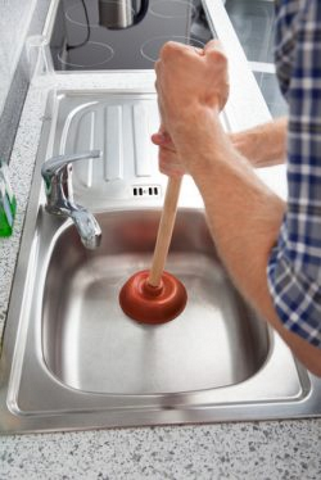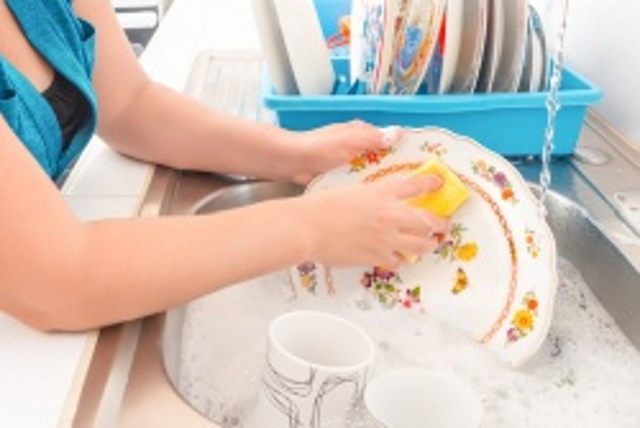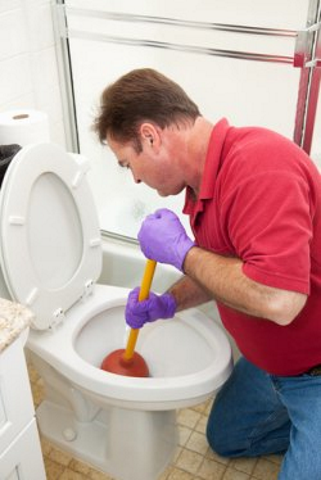Monday, March 9, 2015
Imagine standing in the shower with water up to your ankles, or spending essential 'reading' time on the toilet and then it won't flush.
 The most common area for blockages is in the kitchen.
The most common area for blockages is in the kitchen.Most blockages are due to poor maintenance and bad habits, and while a twice yearly inspection may not stop blockages entirely, it will prevent a big build up that could cause flooding.
The most common area for blockages is in the kitchen. Grease and fat accumulate in the U- or P-trap, and when allowed to stand and cool, will harden and block drainage pipes.
While commercial drain cleaners are available, the best methods for keeping drains free from blockages are:
- Scrape plates into the dustbin before washing.
- Rinse for a few seconds with hot water after cleaning greasy items.
- Allow greasy items to cool and then dispose of in the dustbin.
- Once a week flush the sink with white vinegar.
By knowing and understanding your home plumbing, you can locate and rectify any small blockages without having to call out a plumber.
Blocked toilet
Most toilet blockages are caused by a foreign object being lodged in the U-bend, or too much toilet paper being used. There are many mothers out there who have plenty of experience in retrieving toys and other items from the toilet bowl.
 Rinse for a few seconds with hot water after cleaning greasy items.
Rinse for a few seconds with hot water after cleaning greasy items.If you know that junior has flushed one of his toys down the toilet, use a bent coat hanger to try and retrieve the object. Chances are it's stuck in the U-bend. By bending a small hook at one end - an 'L' shape - to hopefully hook and pull the blockage out.
For other blockages you can try a trusty plunger to remove the debris. Pop on some rubber gloves and insert the plunger into the toilet bowl all the way down into the bottom of the bowl. Pump backwards and forwards - it may take more than a few attempts but don't give up easily.
If none of the above work, you may have tree roots infesting your pipe or collapsed and damaged pipes. In this case, you will need to employ a qualified plumber who will be able to resolve your blocked toilet.
Blocked outdoor drains
As grease and fat accumulate within drains, they attract additional debris that eventually build up within the drainage systems over the years, reducing the flow of water through the pipe until it eventually blocks. This can be reduced by being careful about the amount of grease and fat being washed down the drain and with regular flushing.
A plumber’s auger is an indispensable tool to have on hand for blocked drains. You'll find this tool at your local Builders Warehouse and it's easy to use.
Plumber’s auger to unblock drain
 Most toilet blockages are caused by a foreign object being lodged in the U-bend, or too much toilet paper being used.
Most toilet blockages are caused by a foreign object being lodged in the U-bend, or too much toilet paper being used.A plumber’s auger (or snake) is used to attempt to clear the passageway and permit a free flow of water. The auger is inserted into the hole of the drain where the clog is located and maneuvered until it reaches the blockage. By twisting and rotating the auger debris is cleared.
Before using a plumber’s auger, put on rubber gloves and have some old towels and a bucket handy to collect any water that may run over on the floor.
Remove the drain cover
Feed the end of the auger into the drain. Rotate it in a clockwise direction as you slide it through the pipe. Keep feeding in while rotating until you hit the blockage. If you cannot locate the obstruction, the blockage may be in the main sewer pipe, in which case you will need to call in a professional plumber.
Once you have reached the blockage, rotate the head of the auger until you can feel it latch onto the clog. Once you have a good hold, slowly withdraw the auger out of the drain.
You can also push the auger and chew away at the clump. If it is a thick and solid clump, then use the auger to gnaw away at the clog. When you pull the blockage back, it may start to become messy. This is where a bucket and towels become handy.
To get rid of the remaining pieces in the drain, you can run hot water down the drain for a few minutes to wash away any remaining debris.
Plumbing augers are a great tool to unclogging a drain and when used properly, can help you avoid an expensive plumbing bill.
Home - Dzine
Your online source of ideas and inspiration.